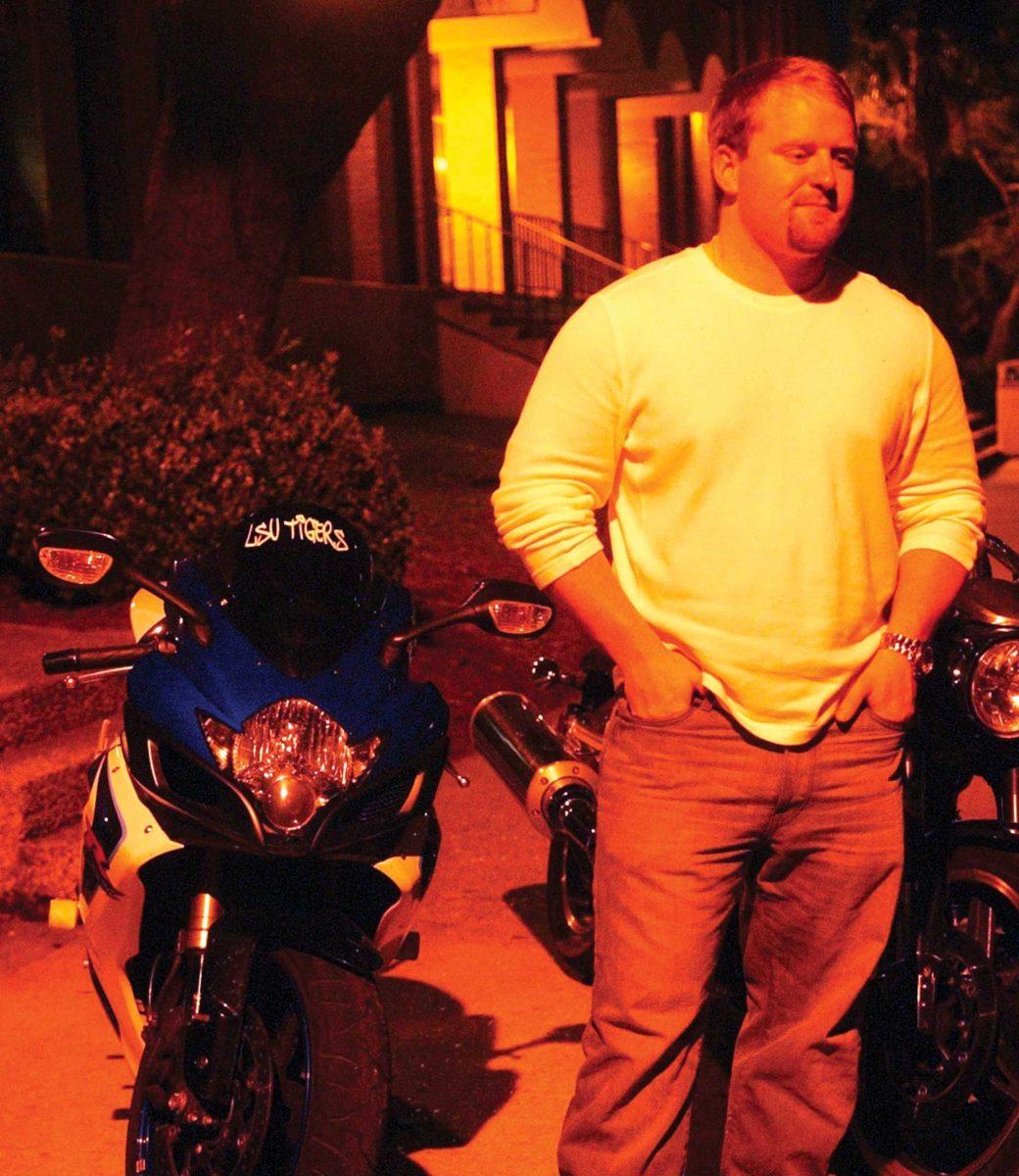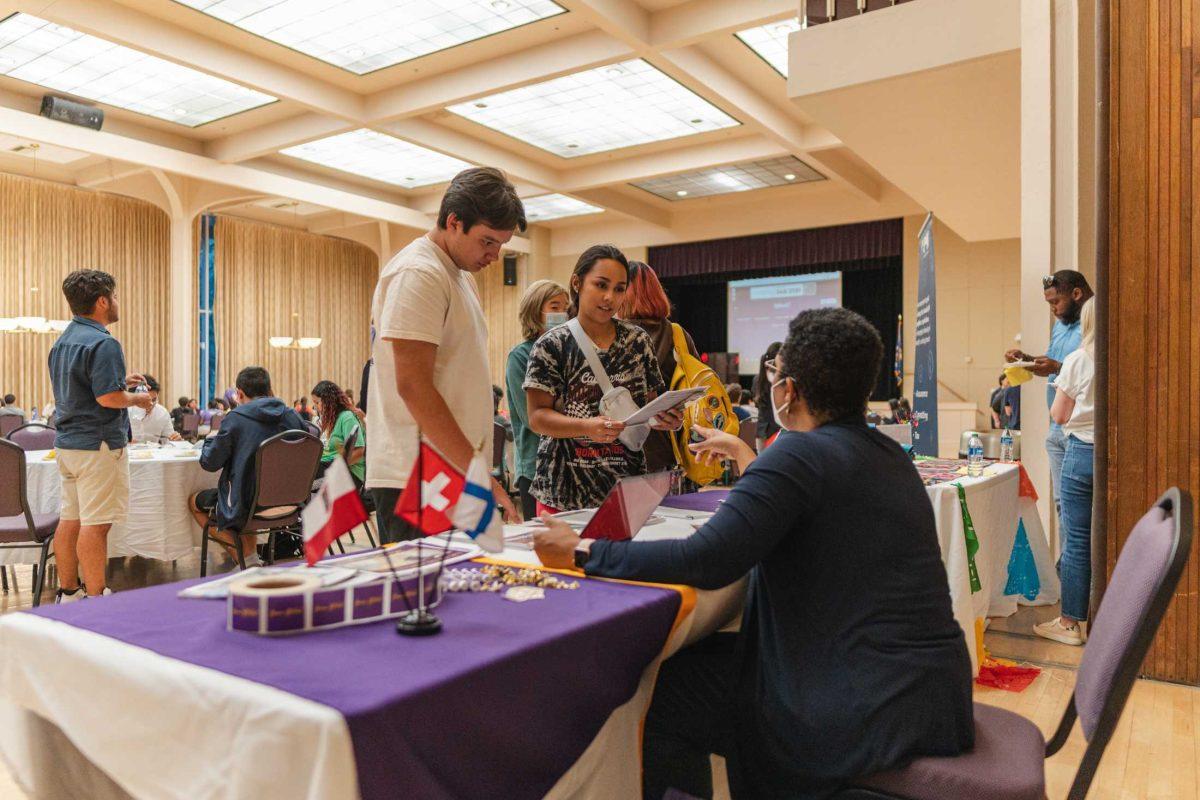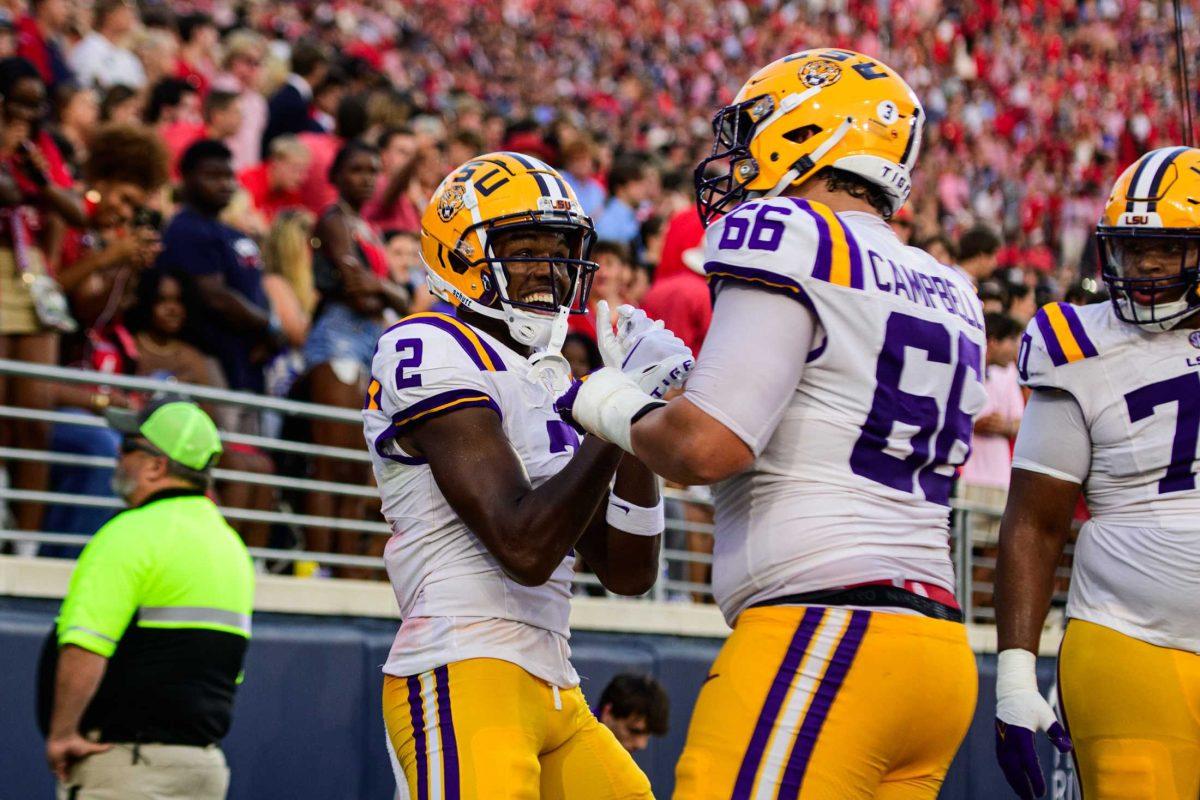The smell of gasoline and burning rubber doesn’t appeal to most people, but the members of the Motorcycle Club of LSU live for it. Dressed like regular students in polos and jeans rather than stereotypical biker clothes, the members of the motorcycle group socialized before taking off for the weekly Tuesday communal joyride followed by a group dinner, which usually takes place at George’s Restaurant.This group of University students, “a brotherhood of motorcyclists” along with its one female member, originated three years ago as a way for students to gain advanced learning and experience with the machines they ride in a “controlled environment” of both experienced and new riders.”We got together mainly to find more riders on campus,” said Mark Duplessis, communication studies senior and vice president of the group. “As a club, we try to promote safety, organize communal rides and hang out, basically. No one wants to ride by themselves.” The motorcycle club has 30 members, with nine members joining this year.Though the motorcycle club has more than the five necessary members to become a registered organization with the University’s Campus Life, the self-proclaimed Motorcycle Club of LSU is not officially affiliated with the University, mainly because of a $1 million insurance policy the University’s Office of Risk Management and Campus Life would require the club to have.”When we have groups that may bring risks to students, we work with the University’s Office of Risk Management to assess the risks and other requirements they need to meet,” said Michelle Lowery Eldredge, associate director of Campus Life. “Basically, [the group] would have to work with an insurance company to get a policy, and I would imagine there would be a monthly fee that the club members would pay. The club would have to show proof of that policy to the University.” This group of motorcycling students isn’t the first to experience such an expensive setback to become an official organization registered with Campus Life. Eldredge said a group of students interested in firearms said in its Campus Life application it wanted to travel as a group to the shooting range. To make those trips, Eldredge said, the group had to get the same $1 million insurance policy because of the risk and liability involved with group trips to the shooting range, a move the group opted not to take.The motorcycle club submitted a charter to Campus Life based on the Baton Rouge Motorcycle Club’s waiver, but the charter was declined, and the group was told to get the insurance policy.”There’s no point in having a motorcycle club that doesn’t ride together,” said Kevin Goodlett, sociology senior and the group’s retention officer. “It’s a lot safer to ride as a group. It’s hard to see just one motorcycle, but it’s easy to see a large group of motorcycles. Also, the exhaust is a safety feature because people can hear us coming from far away.” Eighteen percent more students have purchased motorcycle permits this academic year than last year, according to Gary Graham, director of the Office of Parking, Traffic and Transportation. There are 205 students and 75 employees with motorcycle permits.”Several new riders on campus have told me they’ve never rode a bike before in their life,” said Aaron Wascom, electrical and computer engineering freshman. “These new riders get a bike when they go to college, and you can tell they don’t know what they’re doing, stopping and stuttering on the bike.”Goodlett said the club advertises at the beginning of each semester but cannot attend the organizational fair put on by Campus Life. Education for new riders is a main part of the club’s mission, which states, “We believe that with brotherhood among motorcyclists, we can learn how to care for and modify our bikes and learn good safety techniques on how to stay alive on the ride.”The group meets every Tuesday at 6:15 p.m. in the Lockett parking lot.- – – -Contact Mary Walker Baus at [email protected]
$1M insurance policy keeps motorcycle club unofficial
January 27, 2009






